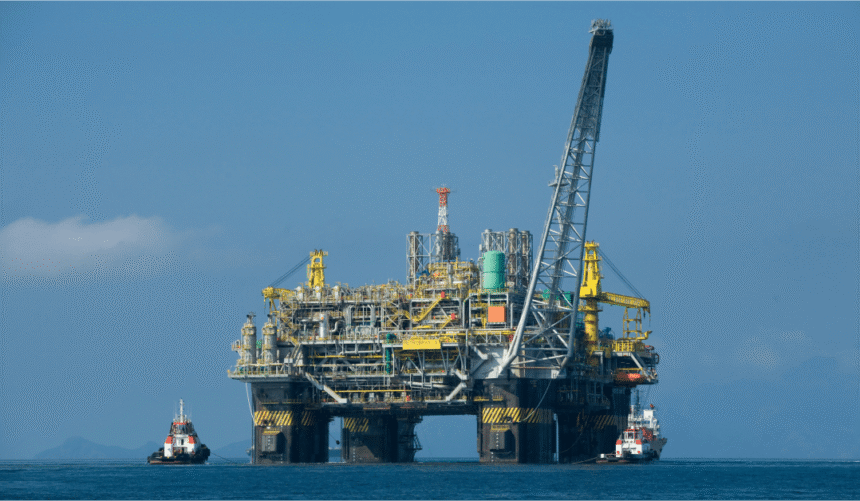
Something deep inside keeps telling me Nigeria would have been far better without crude oil. And I believe it! Nigeria was relatively better before independence. It was still, before crude oil became the main economic sustainer, before the 1970s. Nigeria’s economy was stronger in the global trade index. The currency was competitive.
The discovery of crude oil in commercial quantities introduced crudity into our psyche, and drew unnecessary attention locally and globally. Things began to fall apart. Foresight disappeared. Ingenuity diminished. Innovation was abandoned, integrity shunned, sanity fled, love lost, equity disdained, justice defied, lust embraced, avarice cuddled, corruption celebrated, and society raped. The nation went adrift. And, is still abroad, drifting!
Almost all the afflictions suffered by the country today have a tinge of crude oil. Either directly or as an ancillary. Nigeria had issues before independence, but these were localized. Crude oil came and globalized them. Brothers used to live together, but crude oil came, as a hot knife in butter, and divided them. Nigerians relied on hard work for existence, crude oil came and lubricated the gears of indolence as the wetlands pumped in massive petrodollars at the strike of a well.
The country went berserk. We had so much that we did not know what strategic thing to do with it. We went on a prodigal spree, spending freely and stealing some. Government work that used to be a farmland of integrity became the jungle of mindless pilfering. The forests, the grasslands and rivers, which were the sources of wealth, saw the back of enterprise; and white-collar jobs, contracts and consultancy became the new brides because of their petrodollar attractions.
Senseless politicking, premised more on acquisition than on community service, tinkered with the anatomy of the country and the result of the surgical interference saw the disappearance of the groundnut pyramids, the cocoa warehouses, the palm oil mills, the rubber factories, the piles of timber, the hides and skin tanneries. The skies, which were clothed with white smoke from factories, started dropping dark soot spewed by flares from crude oil wells. The country’s bright future became blurred by dark smoke from oil prospecting activities. Militants rose from the infection. Kidnappers found excuses. The aggrieved took to the creeks. The unfavoured became jealous. Antagonism found some rhythm. Communities became more renowned for restiveness than productivity. And the spectacle is today’s theatre of the absurd, our inheritance.
The fight for the perks and privileges and the entitlement mentality that swells from crude-infested regions has seen communities destroyed, lives lost and long-standing relationships shattered. Brothers are up in arms against each other. That is the current situation with Cross River and Akwa Ibom States, which have for ages shared common affinity – ancestral, historical, political, economic and social relationships. Akwa Ibom had a face-off with Rivers on a similar score, but eventually gave peace a chance.
Both Cross River and Akwa Ibom States were one people until 1987 when they were separated politically. That did not affect the other relationships until the Bakassi issue came, and then oil wells followed. That was how the two brothers fundamentally started drifting apart with flaming swords in hand. But it must be made clear that it is a government-to-government affair for now. The people still cherish their conjugal bliss. But crude oil is threatening their indulgence.
The issue surrounding the 76 oil wells between the two neighbouring states is rooted in historical territorial changes and complex legal considerations regarding maritime boundaries and oil ownership rights. This situation arose from the 2002 ruling by the International Court of Justice (ICJ), which awarded the Bakassi Peninsula to Cameroon, thereby affecting Cross River’s coastal status. This change rendered Cross River ineligible to claim offshore oil wells under Nigerian law due to the absence of a maritime boundary.
To calm nerves and address the emerging challenges, the Olusegun Obasanjo government allocated 76 oil wells to Akwa Ibom and 14 to Cross River as a political resolution. Despite this, Cross River raised concerns about its fairness and initiated a legal challenge.
It asserted claims over the 76 offshore oil wells situated within the 200-meter isobath, adjacent to Akwa Ibom State and argued for ownership and revenue rights to the wells. So far, it has launched two legal proceedings to contest the ownership and boundaries related to these oil wells, maintaining that it has legitimate rights to them.
The Supreme Court has twice rejected the requests on the basis that Cross River is no longer a littoral state and lacks maritime boundaries to claim the offshore oil assets. The court’s decision also took into account the reallocation by the Revenue Mobilisation, Allocation and Fiscal Commission (RMAFC) and clarified that the political agreement from 2006 had been influenced by the shifting geopolitical landscape following the Bakassi cession.
Despite the clarity provided by the court ruling, political discussions continued, with the current Cross River government expressing a desire to revisit the issue. Akwa Ibom, on the other hand, insisted on the finality of the court’s decision, emphasizing that it is binding and not open to further negotiation.
The resolution of ownership in favour of Akwa Ibom carries significant implications for revenue distribution and resource management. Currently, revenue from these wells is held in escrow, highlighting the importance of finding a constructive path forward that respects legal determinations while addressing any lingering concerns from both states.
In recent times, there have been counter-claims by the two state governments regarding who is the antagonist in the matter, particularly as concerns litigation. The Akwa Ibom State Attorney General, Mr Uko Udom, a Senior Advocate of Nigeria, claims the Cross River State Government is guilty of incitement through renewed petitions and disinformation. He absolved his state government of any form of antagonism. Cross River, he stated, has been the perpetual litigant who has suffered two losses serially on the matter.
Udom cited the case in Suit No. 124/1999, which the Cross River State Government sued Akwa Ibom State over the northern non-estuarine boundary (involving 24 villages of Oku/Itu/Ayadehe Ward in Itu Local Government Area of Akwa Ibom State), as well as the southern estuarine boundary where the 76 oil wells are located. The Supreme Court on June 24, 2005, ruled in favour of Cross River State only on the matter of the 24 villages in the north but dismissed the claim over the estuarine southern territory, where the 76 disputed oil wells are located. The reason for the dismissal was that the litigant no longer had a seaward boundary and was not entitled to benefits accruing to littoral entities.
The court explained that the October 10, 2002 ICJ judgment on the land and maritime boundary case between Nigeria and Cameroon had wiped out what used to be the estuarine sector of Cross River State. So, Cross River no longer has a seaward boundary.
Udom explained that after the court ruling, the Akwa Ibom State government made spirited attempts to resolve the oil revenues dispute with its sister state. The efforts included offering Cross River ₦250 million per month from its derivation revenue, which Cross River allegedly misunderstood and rejected in March 2006 and consultations with elder statesmen and stakeholders to avoid litigation, because of kinship ties and the risks of damaging inter-state relations. These peace efforts failed. Cross River initiated a new court action (Suit No. SC. 27/2010), over ownership and revenue rights to the 76 offshore oil wells.
The Supreme Court, on July 10, 2012, again affirmed that on the issue of the 76 oil wells, Cross River lacked standing to claim offshore oil wells as it was no longer a littoral (coastal) state. The meaning is simply that since Cross River no longer had a maritime boundary, it has no right to claim offshore oil assets. In spite of the second ruling, the nagging continued.
The Presidency recently intervened and advised both parties to find a peaceful way around it. Last week, Akwa Ibom alerted that Cross River seems not to be comfortable with the advice and has resorted to blackmail. It has chosen to advance its claims through media campaigns and public statements, and in the process, making misleading statements that are generating unnecessary tension among the people, the Akwa Ibom Attorney General has claimed.
He indicated that Akwa Ibom was open to a political solution, as long as it does not undermine its judicially affirmed rights. Any resolution must also address another contentious issue – the communities added to Cross River, not just the 76 oil wells. He suggested that the Federal Government could assist Cross River through ecological funds and development programmes without taking away Akwa Ibom’s entitlements. He pointed to a similar experience with Rivers State. After losing oil wells to Rivers State in a Supreme Court ruling, Akwa Ibom accepted the verdict and moved on. Cross River should do the same, Udom counselled.
•James, a Fellow of the Nigerian Guild of Editors, lives in Abuja.














